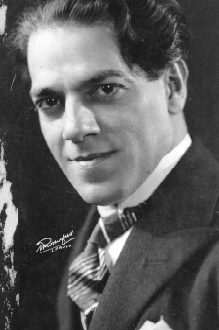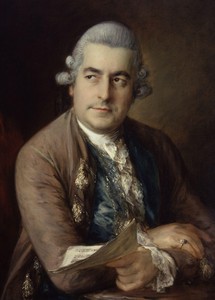
Alexander von Zemlinsky |
Alexander von Zemlinsky

Austrian conductor and composer. Pole by nationality. In 1884-89 he studied at the Vienna Conservatory with A. Door (piano), F. Krenn (harmony and counterpoint), R. and J. N. Fuksov (composition). In 1900-03 he was a conductor at the Karlsteater in Vienna.
Friendly relations connected Zemlinsky with A. Schoenberg, who, like E. V. Korngold, was his student. In 1904, Zemlinsky and Schoenberg organized the “Association of Composers” in Vienna to promote the music of contemporary composers.
In 1904-07 he was the first conductor of the Volksoper in Vienna. In 1907-08 he was the conductor of the Vienna Court Opera. In 1911-27 he headed the New German Theater in Prague. From 1920 he taught composition at the German Academy of Music in the same place (in 1920 and 1926 he was rector). In 1927-33 he was a conductor at the Kroll Opera in Berlin, in 1930-33 – at the State Opera and a teacher at the Higher Music School in the same place. In 1928 and in the 30s. toured the USSR. In 1933 he returned to Vienna. From 1938 he lived in the USA.
As a composer, he most clearly showed himself in the opera genre. Zemlinsky’s work was influenced by R. Strauss, F. Schreker, G. Mahler. The composer’s musical style is characterized by intense emotional tone and harmonic sophistication.
Yu. V. Kreinina
Compositions:
operas – Zarema (based on the play by R. Gottshall “Rose of the Caucasus”, 1897, Munich), It was once (Es war einmal, 1900, Vienna), Magic Gorge (Der Traumgörge, 1906), They are greeted by clothes (Kleider machen Leute, based on the short story G. Keller, 1910, Vienna; 2nd edition 1922, Prague), the Florentine tragedy (Eine florentinische Tragödie, based on the play of the same name by O. Wilde, 1917, Stuttgart), the tragic fairy tale Dwarf (Der Zwerg, based on the fairy tale “Birthday Infanta Wilde, 1922, Cologne), Chalk Circle (Der Kreidekreis, 1933, Zurich), King Kandol (König Kandaules, by A. Gide, circa 1934, not finished); ballet Heart of Glass (Das gläserne Herz, based on The Triumph of Time by X. Hofmannsthal, 1904); for orchestra – 2 symphonies (1891, 1896?), symphonietta (1934), comic overture to the Ofterdingen Ring (1895), suite (1895), fantasy The Little Mermaid (Die Seejungfrau, after H. K. Andersen, 1905); works for soloists, choir and orchestra; chamber instrumental ensembles; piano music; songs.





